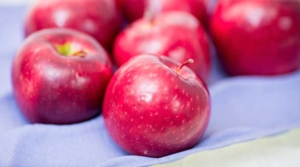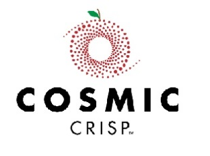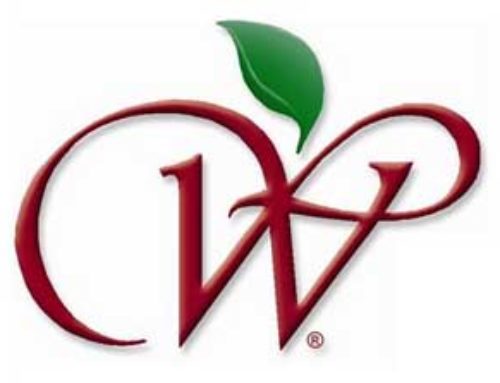
Industry leaders suspect that dueling lawsuits between Washington State University and one of its own start-ups over the rights to sell Cosmic Crisp apple trees will not impact the overall supply as the state’s fruit industry ramps up production of the much-anticipated variety.
“There’s a lot of trees out there,” said Dave Allan of Allan Bros., in Yakima, Washington, and part of a committee formed to steer the Cosmic Crisp’s commercial introduction. “We’ve got more than enough.”
Ultimately, market forces — not lawsuits — will determine the success of the WA 38, which was developed over the course of 20 years for Washington growers and will be sold under the trade name Cosmic Crisp, Allan said. Some estimates put the industry’s investment in the apple at nearly $500 million. Growers began planting in 2017 with more coming this year.
However, suits, filed in both state and federal court, illustrate the high value and high stakes for access to Cosmic Crisp.
In February, Phytelligence sued the university in King County Superior Court for breach of contract after WSU terminated the Seattle tissue culture company’s propagation agreement and instructed it to destroy all the trees they have grown so far, complaining that WSU is not honoring Phytelligence’s option to pursue a commercial license.
“Honestly, it’s all pretty simple,” said Ken Hunt, Phytelligence CEO. “We had an option. We exercised it. We’re not asking for anything special.”

In March, WSU filed a counterclaim in Superior Court and a lawsuit of its own in U.S. District Court in Seattle for trademark infringement.
It claims Phytelligence allegedly sold trees to a Yakima producer, which Phytelligence denies. “We ultimately felt like we had no choice,” said Phil Weiler, WSU vice president of marketing and communications.
This is not the first time that WSU’s apple breeding program has been dragged into court either. A Yakima County Superior Court case centers on commercialization rights of the WA 2 apple.
Keller Fruit of Yakima began marketing the variety under the brand name Crimson Delight through its Apple King packing house; WSU later branded it the Sunrise Magic (See Good Fruit Grower’s June 23, 2016 story on this case.)
History
Phytelligence got its start in 2011 when WSU professor Amit Dhingra founded the company to commercialize a process of micro-propagation, growing trees from tissue cultures rather than soil. With the method, trees reach maturity faster. WSU still owns a stake in the company.
In 2012, Phytelligence and WSU entered into an agreement to propagate the WA 38. That agreement contained an “option to participate as a provider and/or seller” when the cultivar was released.
The lawsuits hinge on the interpretation of that “option” clause. Phytelligence contends the language allows the company to obtain a license to sell the trees directly from the university or its agent, which would be Proprietary Variety Management, or PVM. Proprietary Variety Management was contracted by WSU in 2014 to commercialize Cosmic Crisp.
However, when Phytelligence tried to exercise that option in 2016, WSU and PVM told them to seek a license from the Northwest Nursery Improvement Institute, a collection of like-minded nurseries subcontracted by PVM to supply Washington growers with the coveted trees.
Hunt said that based on the agreement, Phytelligence should not have to use that route but inquired “as an act of good faith” anyway. However, he said, the company never received an application or an adequate response from the institute, based in Prosser.
Representatives from Phytelligence indeed made conversational inquiries about joining but have never applied on paper, said Bill Howell, manager of the Nursery Institute. He’s not sure why. “We are puzzled why they didn’t just upright and ask to join.”
Dhingra, who works for both WSU and Phytelligence, declined comment.
WSU argues the “option” clause allows Phytelligence to pursue commercialization rights like any other nursery.
They may join the Nursery Institute, contract to produce trees with one of the 13 current members or contract with a grower directly to produce the trees but purchase budwood from one of the members.
A few of the current members had similar, but not identical, agreements with WSU and access to budwood for non-commercial use similar to Phytelligence during the development stage of the Cosmic Crisp, Weiler said.
“We need to make sure everybody is working within the system,” Weiler said.
The debate reached its peak in April 2016. That’s when WSU accuses Phytelligence of selling 135,000 trees to Evans Fruit of Yakima, prompting the university to terminate the agreement. Phytelligence denies making the sale, but late last year WSU obtained copies of sales orders and invoices of the transaction, provided to them by Phytelligence officials, Weiler said.
Hunt said that those 135,000 trees “do not exist.” Phytelligence propagated WA 38 in anticipation of receiving a license, but “we didn’t ever graft Cosmic Crisp to the rootstock,” to make trees, he said. “We were unable to do any business with them because we were unable to secure the license.”
Evans Fruit president Jeannette Evans confirmed Hunt’s story. She made a deposit for the trees, contingent on the company receiving its license, and when they didn’t get it, they cancelled the order and refunded her money, she said.
Phytelligence’s breach of contract lawsuit is slated for trial Feb. 23, 2019, though Hunt said Phytelligence still hopes to find an amicable solution outside of court.
No date has been set for WSU’s federal trademark infringement suit.
Northwest Nursery Improvement Institute
The Northwest Nursery Improvement Institute was formed to validate the business practices of its participants and the quality of the trees they produce. The group sometimes runs trials and works with the Clean Plant Center Northwest to make sure new trees are free of disease.
Other nurseries have joined the Nursery Institute since the launch of the Cosmic Crisp, said Howell. The number of members has grown from 9 to 13 in the past two years. The cost to join was at one point $25,000 though Howell would not reveal the current fee. The group’s board has leeway to waive some of that cost.
Anybody who applies would be vetted to weed out those just trying to make a quick buck on the Cosmic Crisp, Howell said. “Are you really in it to help the industry or are you only interested in improving your bottom line?” Only eight of the 13 members currently have the rights to sell Cosmic Crisp trees.
When the disagreement between Phytelligence and WSU reached its head in 2016, demand for new Cosmic Crisp trees far exceeded supply. That’s not the case anymore, said Lynnell Brandt, president and founder of PVM.
“The amount of wood is coming up extremely fast,” Brandt said. Nurseries have been expanding the stock leaps and bounds. “I don’t think budwood numbers will be a limiting factor.”
Scott McDougall, co-president of McDougall & Sons in Wenatchee, had no trouble receiving his rather large tree orders in 2017 and this year, he said. In fact, he even received some scion wood for top working, a common request from growers PVM had considered lower priority than new trees when supplies were low.
“Sounds like they’re catching up,” McDougall said.
West Mathison, president of Stemilt Growers and one of the large producers growing Cosmic Crisp, agreed tree supply is adequate, though he declined further comment.
Allan of Allan Bros. considered the lawsuit small compared to the challenge ahead for marketing such massive volumes of a new variety at one time. PVM estimates 9 million 40-pound boxes of Cosmics will reach store shelves by 2022.
“The market is established on the retail shelf and no place else,” Allan said.
—by Ross Courtney and Kate Prengaman
Timeline leading up to Cosmic Crisp litigation
1998 – WSU professor and breeder Bruce Barritt begins work on the apple variety WA 38..
2011 – WSU professor Amit Dhingra founds Phytelligence to commercialize micro-propagation technology with university support.
February 2012 – Barritt files for patent for WA 38 with U.S. Patent and Trademark Office.
November 2012 – Phytelligence and the WSU Research Foundation, a now-extinct entity for commercializing WSU technology, enter into an agreement to propagate WA 38 that contains an “option to participate as a provider and/or seller” if the cultivar is released by WSU.
February 2014 – WSU receives patent for WA 38.
2014 – WSU enters into an exclusive commercialization agreement with Proprietary Variety Management, PVM, for WA 38. PVM then sub-contracts with the Northwest Nursery Improvement Institute, NNII.
2016 – Phytelligence tries to seek a license to sell WA 38 through WSU and PVM, but was told to work through NNII to obtain a license like every other participant.
December 2017 — WSU alleges that Phytelligence sold 135,000 WA 38 trees without a license in April 2016, but the company and alleged buyer say the order was cancelled when Phytelligence could not get a license.
January 2018 – WSU notifies Phytelligence that it was terminating the Propagation Agreement and ordered it to destroy all the plant material in its possession.
February 2018 – Phytelligence sues WSU in King County Superior Court alleging WSU broke the Propagation Agreement.
March 2018 – WSU files suit against Phytelligence in U.S. District Court in Western Washington for patent infringement and breach of contract.
– Compiled from legal filings and interviews






Leave A Comment